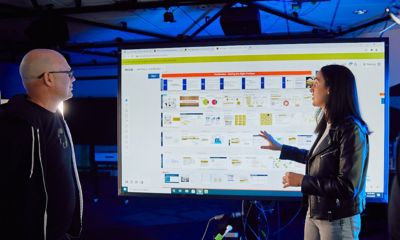RMIT's Bachelor of Data Science will develop skills in data analytics, statistics, computer science, machine learning, programming, mathematics, and data wrangling that will enable you to be central to business decision-making, corporate strategy and government planning.
You will gain strong problem-solving skills, and learn how to effectively communicate your work to technical and non-technical audiences, work independently or as a team, and factor in relevant standards, ethical and legal considerations to your projects.
Using cutting-edge technologies, you will learn how to analyse and manage large amounts of data from various sources and evaluate their insights and solutions. You will gain hands-on experience using Python and R programming languages.
Personalise your degree to suit your career aspirations, selecting from a wide range of majors and minors. Major in advanced data science, cyber security or enterprise systems. Specialise in AI, data analysis, cloud computing, mixed reality, software development and blockchain.
Gain industry experience and connections while you study through work integrated learning experiences. Opportunities include capstone projects, case studies and programming studios.





